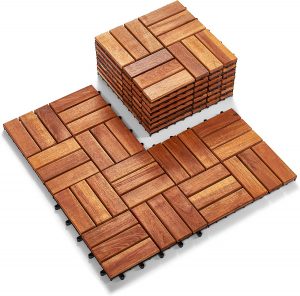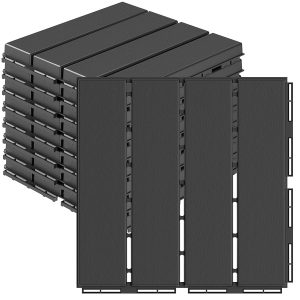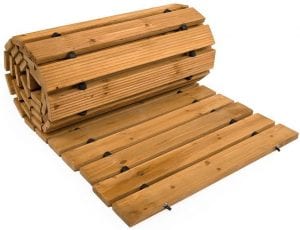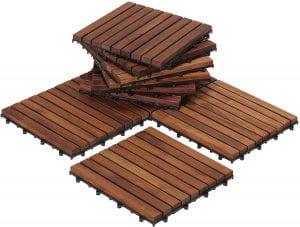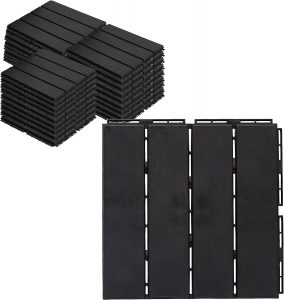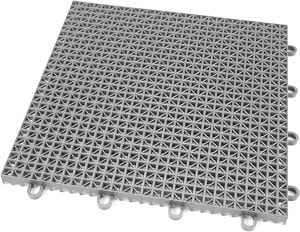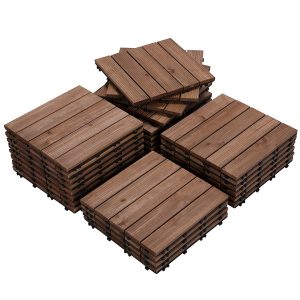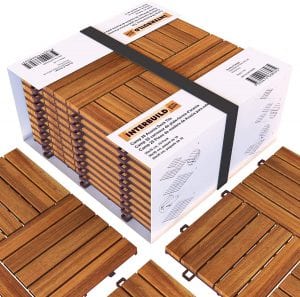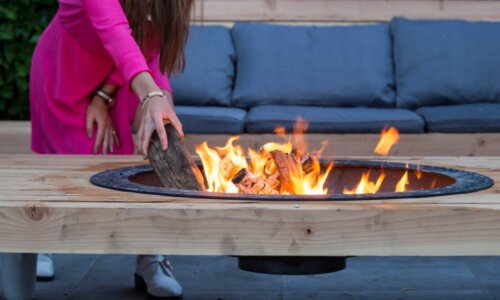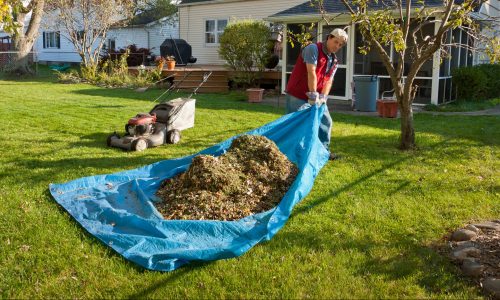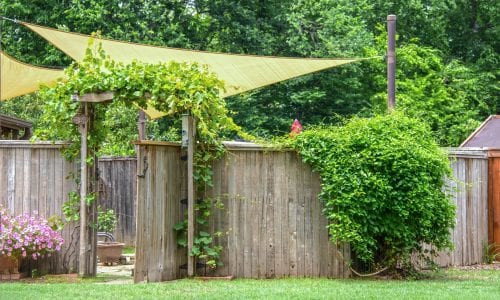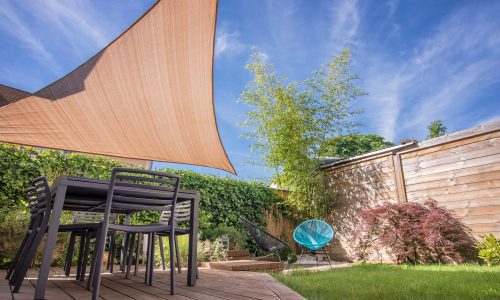The Best Patio Flooring
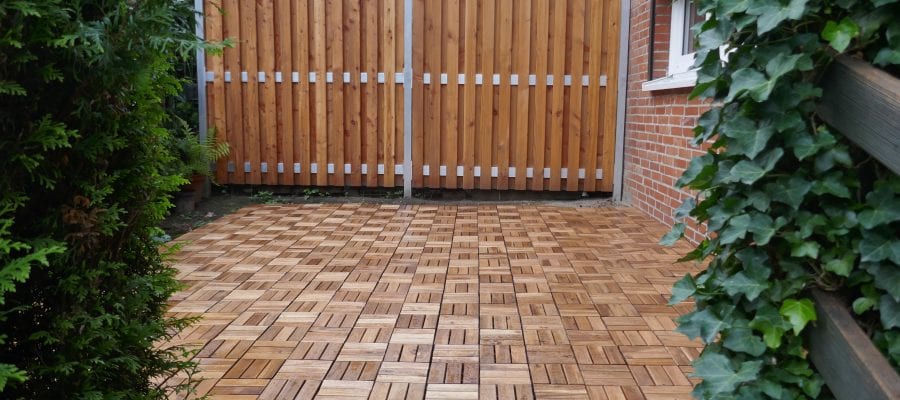
Our Review Process
Don't Waste Your Money is focused on helping you make the best purchasing decision. Our team of experts spends hundreds of hours analyzing, testing, and researching products so you don't have to. Learn more.
Our Picks For The Top Patio Flooring
- 1. RAKYTO Easy Install Natural Wood Patio Flooring
- 2. Goovilla Lightweight Non-Slip Patio Flooring
- 3. Plow & Hearth Semi-Flexible Wooden Patio Flooring
- 4. Bare Decor EZ-Floor Click Connect Patio Flooring
- 5. AsterOutdoor Slip Resistant Open Design Patio Flooring
- 6. IncStores Anti-Slip UV Protected Patio Flooring Tiles
- 7. Yaheetech Fir Wood Anti-Skid Patio Flooring Tiles
- 8. Interbuild DIY Weather Resistant Patio Flooring
Constructed using natural acacia wood, these patio flooring tiles are beautiful to behold. Each pack includes 10 tiles that measure 12 inches by 12 inches. The tiles lock together with ease, making them a great choice for beginner do-it-yourselfers.
Rot Resistant This patio flooring can be installed directly over other flooring types, including concrete, brick and carpeting.
You'll find this patio flooring comes in a choice of dark gray, dark brown, dark coffee and khaki. The pieces interlock for easy installation and each tile measures 12 inches by 12 inches. The material is waterproof and extremely easy to keep clean, making the tiles virtually maintenance free.
Budget-Friendly PickAdd a new look to your space for less using this affordably priced patio flooring.
This patio flooring easily creates a 8' L x 18" W cedar plank pathway wherever you are, making it ideal for special events or everyday use. The planks are weather resistant and durable and can be cleaned by simply rinsing them off with a spray hose. If you want to store it between uses or carry it with you to use away from home, simply roll it up.
Cedar Plank PathwayCreate a pathway in one easy step with this rollout cedar plank pathway.
Whether you choose to set up multiple flooring tiles to cover a large patio or use them as shower mats and floor mats inside your home, these wooden floor tiles are versatile enough to do the job. Each toil is made from genuine solid Teak wood with an oil finish. The floors interlock, allowing you to put them in place without the use of tools or ha...
Indoor or Outdoor UseThese oil-finished wooden patio flooring tiles can be used either outdoors or inside your home.
Buying Guide
One of the biggest differences between decks and patios is the ground you stand on. While decks traditionally feature wood, patios are generally built on some form of concrete.
But there are other options. With patio flooring tiles, you can turn your patio into a comfortable, attractive outdoor living space. Often these are built for easy installation, meaning you can do the work without the use of tools or professional technicians.
Although wood is the go-to look for patio flooring, it’s important to take a close look at the type of material you’re getting. It needs to be something that can withstand various weather conditions, from rain to hail to sleet to snow. Plastic that looks like wood can also be built to last without taking away from the look you’re going for.
Another thing to consider is the location of your patio. If you’re installing flooring near a pool, for instance, you’ll want to make sure it has anti-slip features built in. This is especially important with plastics, which can be slippery if not built specifically to provide friction. If your patio gets direct sunlight, you may want to consider traditional wood over plastic since plastic can retain heat.
What to Look For
- Patio flooring is often sold as tiles that can be placed as needed. You’ll be given a dimension for the set you’re buying, but you can also put multiple sets together to cover a larger area.
- Some flooring tiles can be used either indoors or outdoors. This type of flooring may also work great as a floormat or shower mat.
- Weather resistance can depend on the material, but some are also coated in a finish that provides extra durability.
- If you’re buying plastic tiles, make sure they’re built for proper water drain-off so that mildew doesn’t become a problem.
- Occasionally you’ll need to spray off your patio. Make sure you purchase flooring that can be easily cleaned using water and maybe a little soap.
- Check the installation process carefully for any wood flooring you choose. Some might need hardware, while many others simply lock together.
- If your patio gets direct sunlight for any part of the day, there are a couple of considerations. One is fading. You’ll want flooring that can hold up under harmful UV rays. Another is how the material retains heat. This is especially important if you have pets or young children who might want to walk across it barefoot.
More to Explore
Outdoor dining has become popular in the U.S. in recent years, but it actually got its start in the Middle Ages. Lords who hunted for sport tended to host outdoor feasts, a habit that was adopted by the wealthy class. In the 1700s, those of economic means could pay to dine in private gardens, and the Victorian era brought picnics to the mix.
It wasn’t until the early 1900s that restaurants began providing food to outdoor diners. A seaside restaurant in Coney Island kicked off the trend when it introduced the hot dog to guests. This led other food vendors to begin encouraging outdoor dining, providing seating to keep diners comfortable while they ate.

